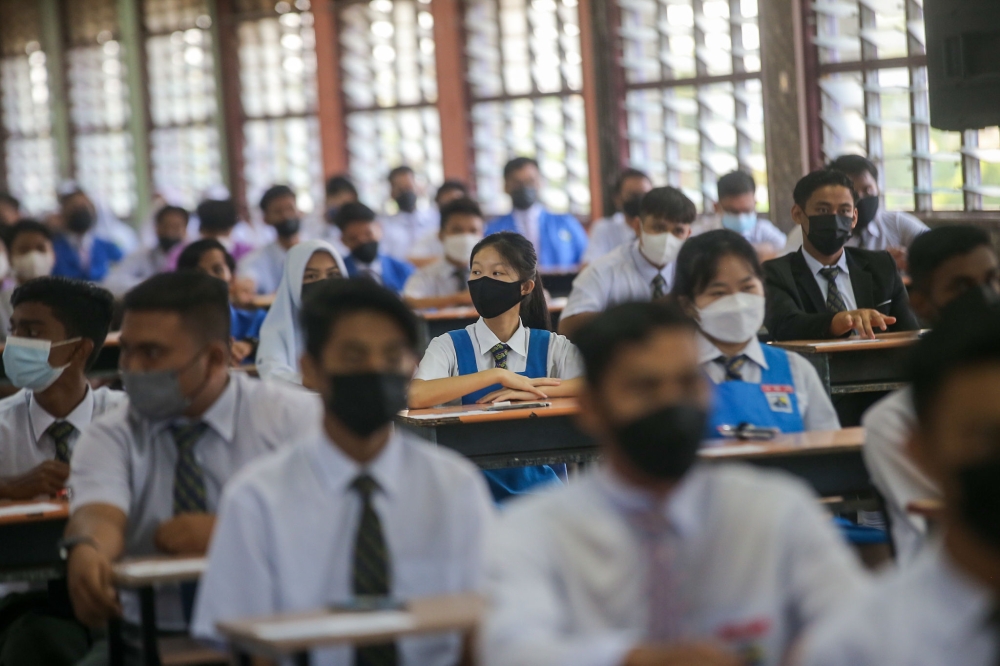FEBRUARY 20 ― As the new school year approaches in a few weeks’ time, it probably wouldn’t hurt to compare two possible ways we frame learning for our students.
How do we motivate our children to learn? What are the narratives or “stories” we inculcate into them regarding the future, the world, opportunities, etc.?
I could be wrong but I believe our country has more or less embraced a scarcity or competition mindset when it comes to education. This narrative revolves around the belief that resources are limited, competition is fierce, and success is scarce.
It is deeply ingrained in cultural values, where academic excellence is often equated with personal worth and societal success.
In contrast, there are narratives of abundance or plenty. This perspective emphasises the vast potential for growth, creativity, and innovation within the educational landscape.
It acknowledges that success is not a finite resource but rather a collective endeavour to foster the talents and abilities of every individual.
Long and short? Don’t stress. Enjoy your studies and take your time to grow and learn.

In abundance-based systems, there is a greater emphasis on personalised learning, creativity, and critical thinking skills. Schools prioritise cultivating a growth mindset, where students are encouraged to embrace challenges, learn from failures, and pursue their passions.
Teachers serve as facilitators of learning rather than dispensers of knowledge, fostering collaboration, curiosity, and resilience among students.
Anna Lembke, in her book about dopamine and addiction (see note 1), discussed how participants (in a research comparing how scarcity and abundance narratives impacted delay gratification) who focused on narratives of scarcity were less able to perform delayed gratification and wanted their reward or payment immediately. On the other hand, participants who were made to read a passage about abundance and plenty were more willing to wait for their reward.
She writes that, “It makes intuitive sense that when resources are scarce, people are more invested in immediate gains, and are less confident that those rewards will still be forthcoming in some distant future.”
Rote memorisation a symptom of scarcity?
Would this not apply to our students too? If our students are constantly fed stories and expectations about how supremely competitive the world is, about how everyone keeps chasing for a pie whose size is reducing more and more, about how it’s important to fight and grasp for whatever we can (and do so as fast as possible), wouldn’t this impact the way they learn? Wouldn’t this impact the amount of patience and nurturing instilled into the schooling process?
Take that “study method” known as memorisation, for example. Many educators will tell you this is a very efficient yet ineffective way of learning. Yes, rote memorisation often proffers immediate gains but not only is it practically devoid of the joy and love of learning, most students also can’t recall much a few days after their examinations.
Worse, often students know no other way of learning something apart from committing to memory large chunks of text.
David Foster Wallace famously said that certain things not only can't be taught but can be retarded by other stuff that can be taught. I think this quote is spot-on when it comes to memorisation method fuelled by a narrative of supreme competition for scarce rewards.
This is to say that the better a student is at memorising (encapsulating the idea that there isn’t much out there for everybody), the worse he or she will become at authentic learning (because that requires having a patient, generous and open mind towards others and the world).
The scarcity narrative promotes immense pressure to excel academically from a young age (no such thing as waiting for the child to develop his/her learning passions naturally).
Thus students endure tutoring sessions, and relentless competition for top spots in prestigious schools. Parents pay an arm and a leg for private tutors and enrichment programmes, all in pursuit of securing a fast competitive edge for their children.
Ergo? High levels of stress, anxiety, and burnout become common among students.
But the narrative of abundance not only promotes academic success but also (hopefully) nurtures well-rounded individuals who are, well, a lot more patient about success. It celebrates diversity (because, uh, not every kid is a Maths genius?), encourages risk-taking and values lifelong learning.
As we approach another new academic year, maybe we need to reconsider the stories we tell our kids. Given that Madani is the buzzword of late, promoting the narrative of plenty hardly sounds like a bad idea?
Note 1: Lembke, A. Dopamine nation: Finding balance in the age of indulgence. Penguin, 2021
* This is the personal opinion of the columnist.






















